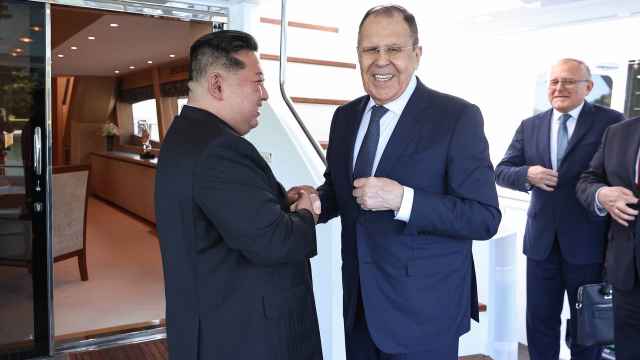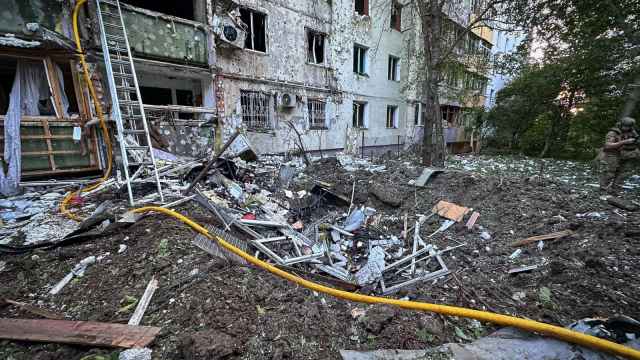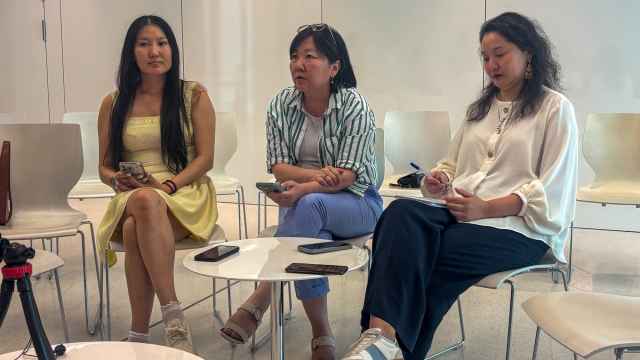Rapid-fire explosions lit up the evening sky over Abkhazia’s capital, Sukhumi, as the rattle of automatic weapons played counterpoint to a cacophonous firework display and the jubilant cries of intoxicated celebrants on the seafront promenade. It was one of the few days in the year when the usually half-
deserted streets of Sukhumi are full of people, the day when the Abkhaz celebrate their victory over the Georgians in the vicious conflict of the early 1990s.
War veterans in their old uniforms and medals joined a triumphant march through the city center. “Friends and relatives gave their lives for our independence, and we can’t forget that,” one portly, mustachioed officer told me, his eyes twinkling with martial passions. “We won’t give up the freedom that we won with blood.”
For the Abkhaz, it’s the biggest party of the year. But for others, it’s a time for grieving. The fall of Sukhumi to Russian-backed rebels in 1993 is seen by Georgians as a particularly traumatic moment in their country’s troubled history.
A couple of days earlier, Georgian war veterans gathered in Tbilisi to commemorate fallen comrades and remember the land they lost. There were a few medals and uniforms, but the collective mood was dour and mournful. Many were refugees, whose hopes of going home are slowly and painfully diminishing as the years pass.
There were conciliatory words from Georgia’s wartime defense minister, Gia Karkarashvili, who once notoriously threatened to wipe out the Abkhaz completely if necessary. Now frail and in a wheelchair, Karkarashvili called on the veterans to drink for the Abkhaz who died as well as the Georgians.
One old soldier echoed these sentiments. “It is impossible to get Abkhazia back through war,” he said. “Politicians should deal with that.” Since the Georgia-Russia war in August 2008, the desire to take back Abkhazia by any means necessary seems to have been softened by the knowledge that any military incursion would be mercilessly crushed by Moscow.
But they also know this in Sukhumi, which means that calls for reconciliation are treated with contempt. “I fought in the war and my brothers died,” asserted a middle-aged Abkhaz woman in faded camouflage fatigues. “We’ll never give our Abkhazia to anyone, even if only one of us is left on this land.”
Matthew Collin is a journalist based in Tbilisi.
A Message from The Moscow Times:
Dear readers,
We are facing unprecedented challenges. Russia's Prosecutor General's Office has designated The Moscow Times as an "undesirable" organization, criminalizing our work and putting our staff at risk of prosecution. This follows our earlier unjust labeling as a "foreign agent."
These actions are direct attempts to silence independent journalism in Russia. The authorities claim our work "discredits the decisions of the Russian leadership." We see things differently: we strive to provide accurate, unbiased reporting on Russia.
We, the journalists of The Moscow Times, refuse to be silenced. But to continue our work, we need your help.
Your support, no matter how small, makes a world of difference. If you can, please support us monthly starting from just $2. It's quick to set up, and every contribution makes a significant impact.
By supporting The Moscow Times, you're defending open, independent journalism in the face of repression. Thank you for standing with us.
Remind me later.





